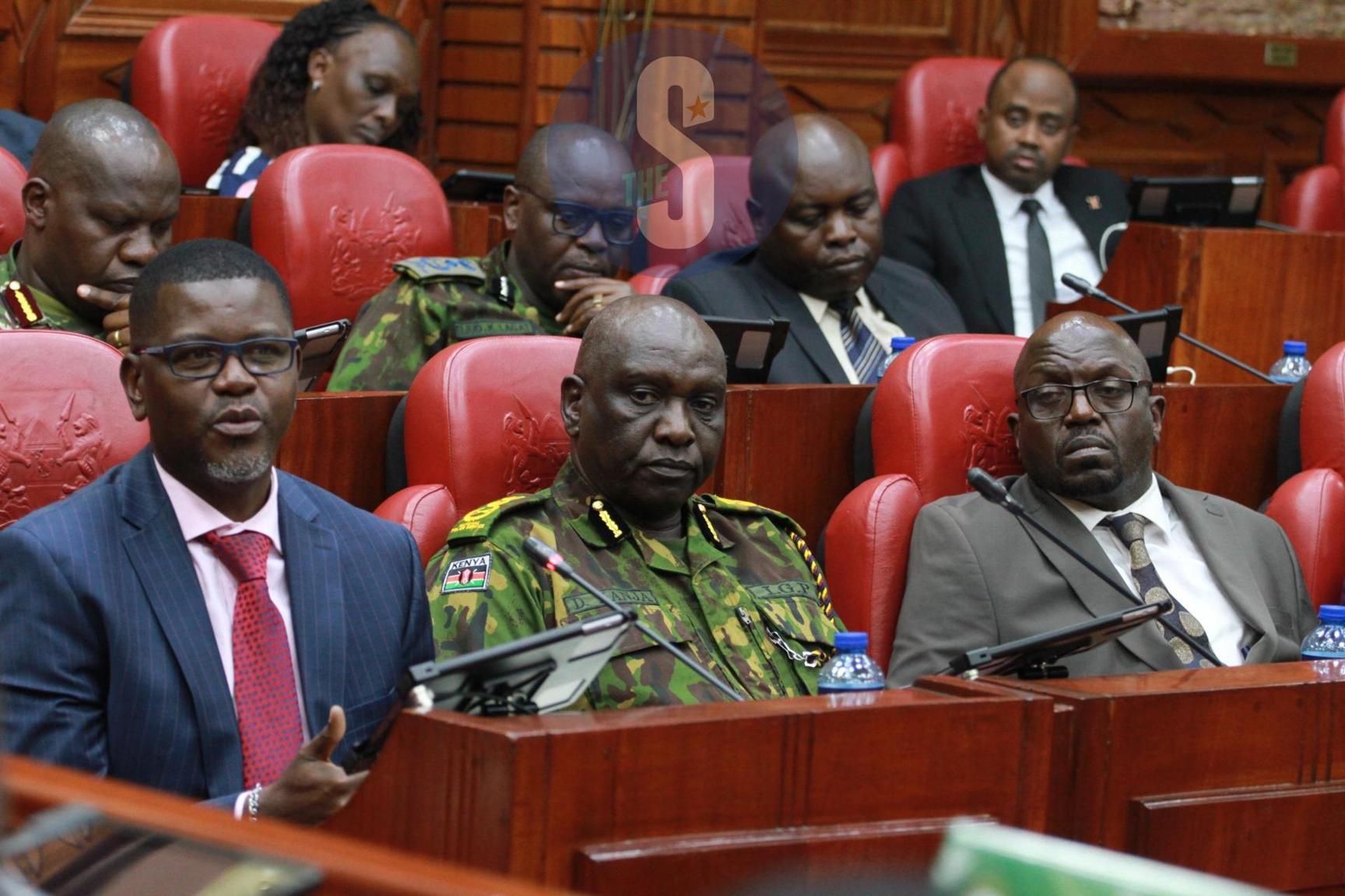Africa-Press – Kenya. The National Assembly and National Police Service have differed with the National Police Service Commission on the proposed online application for recruitment of the police officers across the country.
This comes as the National Police Service Commission prepares to recruit 10,000 police constables.
While the NPSC commission has suggested the implementation of the new recruitment system using online application, the NPS and the legislators opposed the idea citing Internet penetration.
Appearing before the National Assembly Administration and Internal Affairs committee, NPSC Chairman Amani Yuda Komora emphasized the human resource mandate of the commission towards the recruitment of the constables, where interested candidates would apply online and be shortlisted.
National Assembly Committee on Administration and Internal Security chairman Gabriel Tongoyo at the Parliament Building on September 9, 2025. PHOTO/ENOS TECHEThis, he said, was part of the adoption by National Police Service Commission on recruitment and appointments of the constables in bid to curb corruption and influence transparency in the recruitment process
“We intend to use technology from the advertisement of the vacancy to the recruitment process. But we have received your concerns that there may be far-flung areas without a network or internet. We will retreat and agree on the best way forward,” he said.
National Committee chair Gabriel Tongoyo (Narok West MP) also shared his concerns about the two state agencies on matters transparency, equity, curbing corruption, and the digital aspect of recruitment.
“Digital recruitment is an issue that has been discussed very intensively, considering many factors. The need for a country to go through towards the full automation side.The ugly scenes we saw here before, on the payroll and the rest, are being addressed internally, without bringing the ugly face out,” said Tongoyo.
Inspector General of Police Douglas Kanja also told lawmakers that the NPS and the NPSC will retreat and agree on the date and the roadmap for the recruitment.
“I want to assure the public that very soon, we are also going to carry out the recruitment. As the chair of the commission has actually indicated, once we reach it, we are going to come up with the dates and the roadmap for that.”
The NPSC for a long time has been decrying the undermining of its mandate by the NPS, with a supremacy battle likely to be evident in this year’s recruitment.
DIG Police Gilbert Masangeli with his counterpart Eliud Langat./ENOS TECHEAccording to the Commission’s Chief Executive Officer Peter Leley, only Sh75 million was allocated from the required Sh379 million for the financial year 2025/25.
“The commission is underfunded, and this, Mr. Chairman, affects the execution of our constitutional responsibility. As things stand, this recruitment of the 10,000 police officers is likely to be conducted by the NPS, which already received the budget from the National Treasury,” he warned.
The National Treasury confirmed allocating the budget for recruitment to the National Police Service. This, according to Leley, has undermined the commission’s ability to independently and effectively discharge its recruitment mandate.
The MPs also heard that the continued reliance on delegation is likely to continue diminishing public trust in policing, with much of the criticism directed at the Commission.
“Unfortunately, this practice has not only undermined the Commission’s institutional credibility but also weakened confidence in the police reform agenda. Perceived or real mandate overlaps under Articles 245(4)(c) and 246 (3) of the Constitution have occasionally arisen.”
Leley also informed the committee on how the commission is set to distribute the 10,000 constable slots as far as fairness, inclusivity, and national representation are concerned.
“The Commission has developed a slot allocation formula for distributing recruitment opportunities across all 290 constituencies. This will ensure equity based on factors such as latest population data, poverty index scores, marginalized communities, ethnic, regional, and gender balance, among other things.”
For More News And Analysis About Kenya Follow Africa-Press






